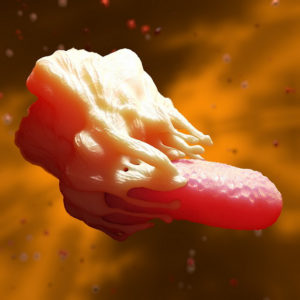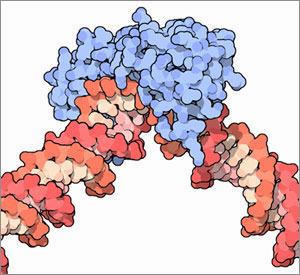Transcription factors form multiprotein complexes that coordinate gene expression and regulate cellular responses (1). In cancer, aberrantly expressed transcription factors often alter gene expression programs, and although these transcription factors are promising targets for therapeutics (2), they remain largely untested. Deemed “undruggable” (3), their perturbation often requires specific disruption of protein-protein or protein-DNA interactions. To date, the discovery or design of small-molecule probes and drugs that specifically disrupt such interactions has proved challenging. On page 779 of this issue, Illendula et al. (4) describe the development of a small molecule that inhibits progression of a subtype of acute myeloid leukemia (AML). The compound binds to an oncogenic version of a transcription factor subunit called core binding factor β (CBFβ), which arises from a chromosomal translocation. The strategy used to develop this drug may be applicable to other oncogenic proteins that arise from chromosomal translocation events….







